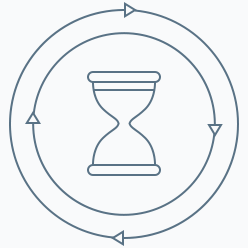Overview
Impact Data to Repair the Planet
Seabin sells impact data as our primary source of revenue.
So much that we don't sell Seabins anymore, we clean up entire cities and sell the impact data we create.
The emerging biodiversity market in Australia will be worth $137 billion by 2050. Seabin will hit our $1 million annual recurring revenue milestone this quarter from selling impact data, and now we want to scale it up.
We have raised $2.92 million from two Birchal campaigns in 2020 and 2021, and now we seek to raise the maximum of $3 million to scale up our revenue, our impact and build our nature repair digital platform to manage the data program.
Product / Service Details
We don’t sell Seabin’s anymore, we sell impact data and services
Impact Data
Seabin has an impact data model that’s about to hit our $1 million annual recurring revenue milestone this quarter, and now we want to optimise our impact data, and scale it up.
Services
Seabin service contracts with NSW State Government, Waste Management and some private sector clients, our goal is also to scale this up.
Business Model
Summary
Seabin's model is to primarily generate revenue by creating data from cleanup and then selling it to corporates as impact data. Each client is on a 3 year term which creates annual recurring revenue.
Description
Along with brand equity, Seabin has found its real value proposition in selling impact data from our cleanup operations. Seabin also has utility service contracts with a waste service provider and NSW State Government. We are now ready to scale this dual model as quickly as possible to meet market demand. Our goal is to replicate this dual model and be operational in 100 cities by 2050.
Mission & Objectives
Mission
Our mission is simple: To be operational in 100 cities by 2050, and to use impact data to help repair the planet.
Business Objectives
Seabin is well-positioned to be a significant front-runner in the $137 billion emerging biodiversity market in Australia.
The funds raised will be used for;
- Research and development of new financial impact data products for the biodiversity market
- Optimise and digitise impact data processing and reporting by design & development of a nature repair data platform
- Partner with government to provide marine estate clean-up and prevention as services
- Scale up marketing and sales organisation to bring new financial products to market
Industry
Summary
The ocean sector is traditionally thought of as research and academia. Seabin has now built a substantial business model and scaling plan based on impact data, services, prevention and communications.
Description
The $900 billion carbon market has its flaws, but its proof that it can be profitable to repair nature. Consumers are now demanding impact with purchases, which is how Seabin currently sells impact data.
Now with the Taskforce for Nature-related Financial Disclosures (TNFD) building the framework of a $44 trillion global biodiversity market, never has there been a better time to invest in nature repair.
Seabin is literally writing the book on impact data for microplastics, and has created a profitable business model focused on people, planet & profit.
Seabin invites you to join our mission.


